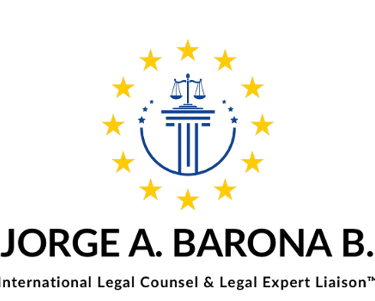The Corporate Sustainability Due Diligence Directive (CSDDD) and Its Impact on EU-Funded Projects
The Corporate Sustainability Due Diligence Directive (CSDDD) is set to transform how companies operate within the European Union and beyond. Adopted as part of the EU’s Green Deal and the broader sustainable finance agenda, the directive aims to ensure businesses integrate sustainability and human rights considerations into their operations and supply chains. It imposes legal obligations on companies to identify, prevent, and mitigate adverse environmental and human rights impacts across their value chains.
Jorge BARONA
2/26/20252 min read
Legislative Background
The Corporate Sustainability Due Diligence Directive (CSDDD) was officially adopted by the European Parliament in 2024 and is set to take effect in 2026, following national implementation by EU member states. This directive establishes a comprehensive legal framework requiring large EU and non-EU companies operating within the EU to conduct due diligence on human rights and environmental risks across their supply chains. The regulation primarily applies to companies with over 500 employees and a net turnover exceeding €150 million, with stricter requirements for firms operating in high-risk sectors.
Beyond company size, CSDDD is also relevant to businesses outside the EU that engage in commercial relationships with EU-based companies. This means that foreign enterprises, regardless of their direct presence in the EU, will be expected to comply with the directive’s sustainability and human rights due diligence standards if they supply goods, provide services, or have partnerships with EU firms. Compliance obligations will be assessed not only based on a company's financial metrics but also on the nature of its business activities, including operational processes, workforce conditions, and product lifecycle impact. This expanded scope ensures that sustainability and ethical standards are upheld across global supply chains, reinforcing the EU’s commitment to responsible business conduct beyond its borders.
CSDDD and Horizon Europe: Key Implications
Horizon Europe funds innovation and research projects that drive sustainability, technological advancements, and economic growth. With the implementation of CSDDD, project participants—whether institutions, corporations, or SMEs—will need to align with enhanced sustainability and human rights due diligence standards. Key implications include:
Stricter compliance requirements for project funding, ensuring adherence to sustainability and human rights benchmarks.
Greater accountability in supply chains, encompassing material sourcing, labor practices, and environmental impact.
Enhanced risk assessment and reporting mechanisms to align with the EU’s corporate sustainability objectives.
Challenges for Global and South American Companies
While large EU-based corporations may have the resources to comply with CSDDD, companies worldwide—particularly in regions like South America—face significant challenges. Many SMEs operate with limited financial and human resources, making compliance more difficult. Some key obstacles include:
High adaptation costs to meet EU sustainability and human rights due diligence requirements.
Lack of technical expertise in compliance, reporting, and supply chain management.
Potential exclusion from EU-funded collaborations due to failure to meet new regulatory thresholds.
Increased scrutiny of business operations, requiring better documentation and transparency regarding labor conditions and environmental impact.


